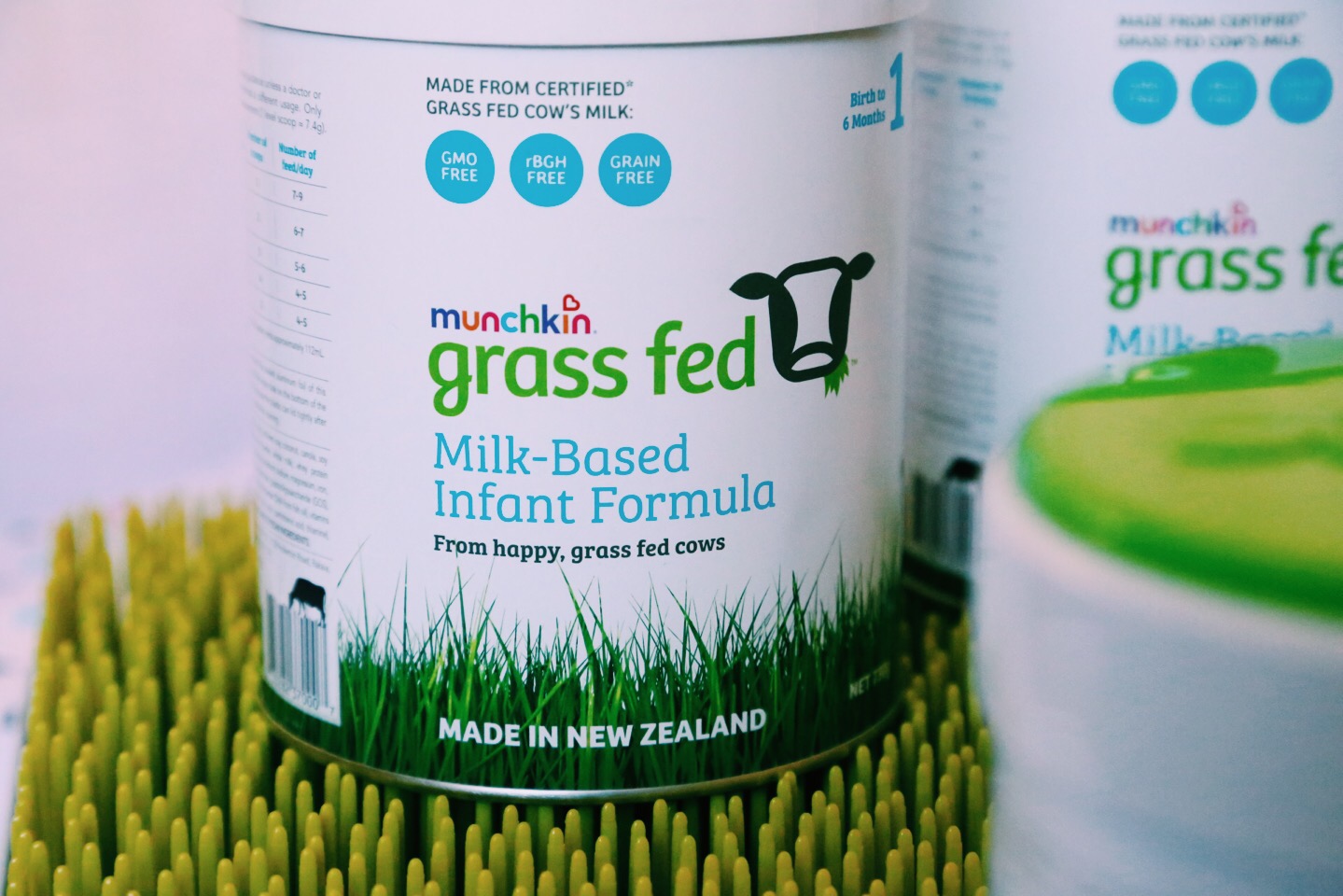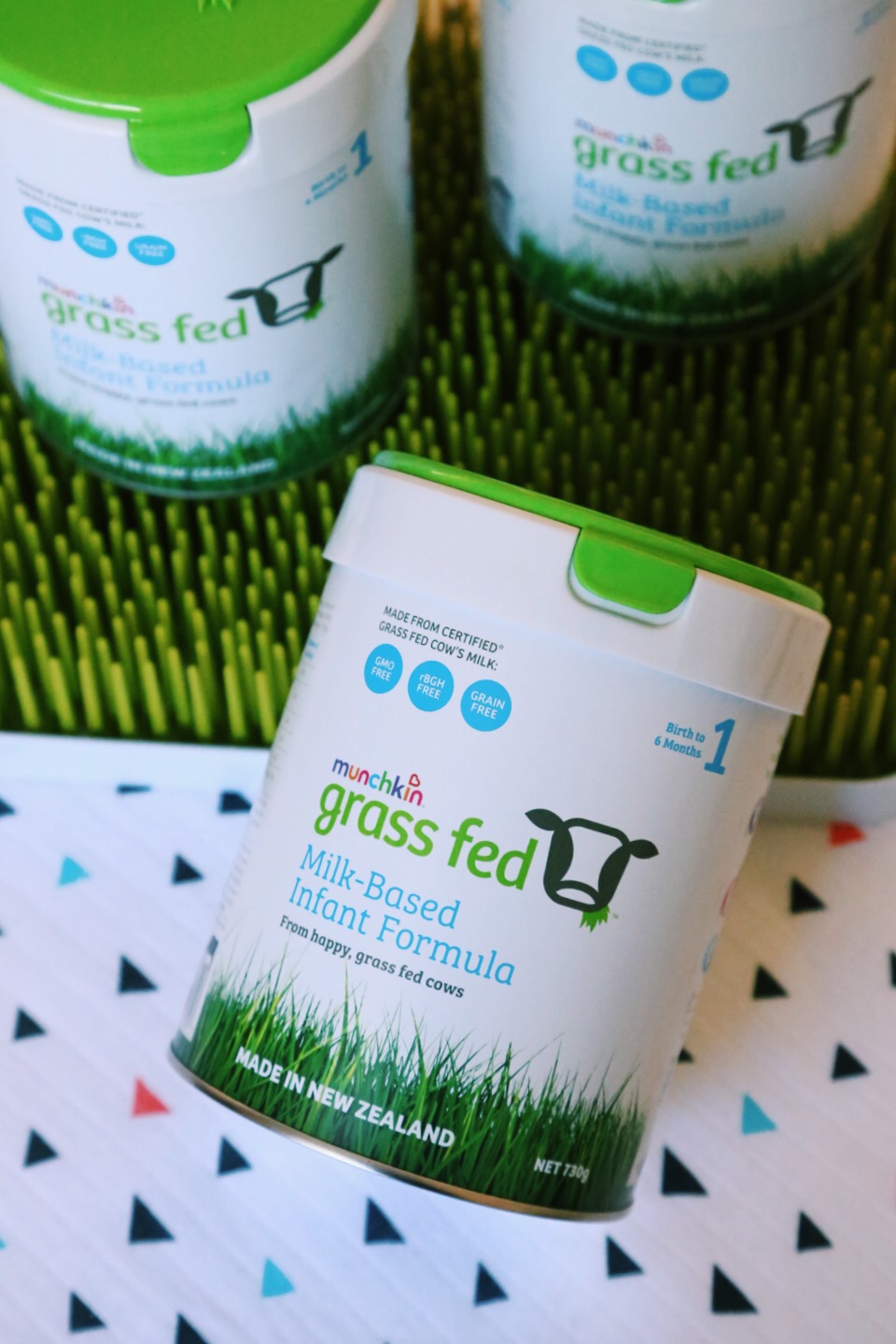Grass Fed for my Munchkin
The first few weeks after giving birth were interesting times. And by interesting, I mean ball breaking. And by ball breaking, I mean painful as all hell. Recovering from a c-section had its own challenges, but then there was another hurdle that I just didn't expect to kick my ass the way it did: the struggle that came with early breastfeeding. It’s not something that anyone had ever spoken to me about in great detail so I was completely in the dark about the reality of it. All I could think about was the way women pull out a boob in cafes to feed their babies and how it always looked so easy… so I struggled to work out why was I having such a hard time of it?! I had an abundant supply so despite the pain of early conditioning, I wanted to persevere. I thought I was doing OK… until all my weird and wonderful health problems kicked in. A surprise lump needed to be surgically removed, then came the blood clot scare… a few trips to the emergency room and a discovery of some gallstones later, I was physically exhausted. I just knew that this was a manifestation of the stress and hurt I suppressed during the pregnancy.
Three and a half weeks in, the pain finally subsided, Xavier was latching correctly and was doing great. Then came the breastfeeding heartbreak. At 9pm on a Friday night, I received a phone call from my doctor urging me to pick up a script from her immediately for a 3 week round of antibiotics that were not safe for breastfeeding. If I had any hope of getting better, I had to get on that medicine and subsequently stop breastfeeding. We went through all my options, but the bottom line was that continuing breastfeeding meant running the risk of making Xavier very sick. I cried like a schoolgirl. Things were going great, then that. I felt like I couldn't catch a break, but I had no other choice. It wasn't about me anymore, and after all, the boy had to eat.
Before giving birth, I had one can of formula stored away and I’m glad I did. I didn't think I would need to crack into it so early. I decided early on that if I was going to feed Xavier formula, it was going to be Munchkin Grass Fed. I was fortunate to be invited along to the launch of this formula only a few weeks before giving birth. At this event, I got to hear about what made Grass Fed different from other formula brands on the market. To be completely honest, I fell in love with the no BS approach and starting with the highest quality milk was really important to me. Xavier took to Grass Fed exceptionally well and within two days , these tiny red spots on his face disappeared, his night sleeps became a lot more settled and I was able to start establishing a routine. While I cannot say that this formula will have the same effect on all babies, I can definitely say that its been great for mine.
If you're considering a formula for your soon-to-be-born baby or looking to make the switch, have a read of this Q&A with Paediatric Nutritionist Mandy Sacher...
Q: What is grass fed milk?
A: 100% grass fed milk is made from cows that are fed an exclusive diet of grass, plants and shrubs.
Most farming practices today have the feed of dairy cows supplemented with grain, corn and soy based foods, which can expose cows to GM ingredients and impact the nutritional properties of the milk itself.
When cows are fed a 100% grass fed diet, the milk has been proven to contain more nutritional benefits than grain-fed. So when cows are fed a nutrient rich diet (like grass in Munchkin Grass Fed) they are healthier and produce a higher grade quality of milk.
Q: Why is the milk used in a formula important to its overall quality?
A: Most parents don’t realise that on average up to 65% of a formula is made up of milk and milk by-products so the quality and source of milk used in any formula is of paramount importance.
While it can be confusing with so many options available, mums really need to do their research and to first identify whether milk is right for their child and then to make sure the formula they are offering is made from a high grade quality milk.
Q: Is there a difference between organic and grass fed?
A: The main difference between organic and grass fed milk is in relation to the way a cow is fed. Certified Organic Milk can come from cows that feed on certified organic grain, whereas only grass fed milk specifies that the milk must come from cows that feed on grass, plants and shrubs exclusively.
Q: What are the key benefits of grass fed as opposed to grain?
A: As the preferred natural diet of cows, 100% grass fed milk contains multiple nutritional benefits when compared to the milk produced from cows fed a grain based diet. This includes:
- Up to five times the naturally occurring conjugated linoleic acid (CLA). CLA is a fat also found in breast milk and has various benefits for toddlers including boosting the immune system, improved bone mass and controlling blood sugar levels
- Higher levels of beta carotene from grazing on natural pastures, assists with immune health, visual health and fat metabolism
- Increased levels of antioxidants such as vitamin E
- Higher levels of minerals and vitamins
- A healthier ratio of Omega-6 to Omega-3 fatty acids
- Further, cows on a 100% grass fed diet do not consume genetically modified ingredients like corn, soy or canola oil, making it naturally GMO free
Q: Is this just a new 'buzz' word or have the benefits of grass fed been proven over time?
A: Ensuring cows are raised on their preferred natural diet of grass is not a new phenomenon at all. The livestock industry has long recognised the superior quality of grass fed beef, as have the benefits of grass fed milk been experienced by the dairy industry.
Q: Does the amount of grass in a cow’s diet matter and why is 100 per cent grass fed important?
A: The more grass present in the diet of a cow, the higher the nutritional output of that milk will likely be. With that in mind, looking out for a 100% grass fed distinction is important as this means that a cow is not only fed grass as part of their diet, but rather this is what makes up their diet exclusively. A 100 per cent grass fed stamp ensures that the milk is of a high quality, combining all the nutritional benefits offered by grass fed milk.
Q: Munchkin Grass Fed comes fortified with probiotics, why is it important to choose a formula with probiotics?
A: One of the main benefits of breast milk is that it is saturated with beneficial bacteria, which influences the state of a baby’s health. A healthy gut (microbiome) is the cornerstone of good health in young children. A formula supplemented with probiotics, or prebiotics, can help maintain a healthy microbiome in formula fed babies who are not receiving breast milk.



